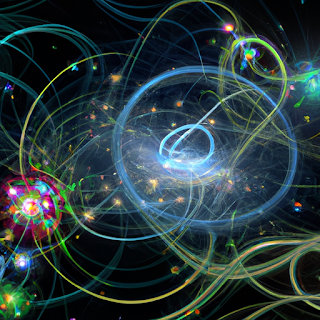What is Quantum Chaos and why is it important to understand
Quantum Chaos refers to the complex behavior of quantum systems and the ways in which they can become unpredictable and irregular. Understanding Quantum Chaos is important for a variety of reasons, from improving our understanding of matter and energy to developing more advanced forms of computing and cryptography. Quantum mechanics is a fascinating field of study that continues to push the boundaries of what we know about the world around us, and Quantum Chaos is an integral part of that. By exploring this concept, scientists and researchers are unlocking new ways of looking at the universe and discovering insights into the fundamental nature of reality itself. As we continue to delve deeper into the realm of Quantum Chaos, we can expect to see many exciting advances and breakthroughs in the years to come.
Exploring the Interaction between Classical and Quantum Systems
For centuries, classical systems have been the foundation of understanding the physical world around us. However, the increasing demand for more accurate measurements and advanced technology requires us to incorporate quantum systems into our understanding. It is important to explore the interaction between these two systems to gain new insights into the complexities of nature. The study of classical and quantum systems can help us understand the fundamental principles of physics and engineering. Furthermore, this exploration can also lead to the development of new technologies that can revolutionize the way we live our lives, from faster computing to more efficient energy production. The possibilities are truly endless when these two systems come together in harmony.
The Role of Schrödinger’s Equation in Understanding Quantum Chaos
In the world of quantum mechanics, chaos can be a confusing concept to grasp, but Schrödinger’s equation has played a pivotal role in helping researchers understand it. This equation is at the heart of quantum mechanics and provides a mathematical description of how quantum systems evolve over time. By using this powerful tool, physicists can tackle some of the biggest questions in the field, such as predicting the behavior of quantum particles in complex systems. Despite its complexity, Schrödinger’s equation has provided a foundation for understanding the principles of quantum mechanics, ultimately leading to breakthroughs in areas such as quantum computing and cryptography. As technology continues to advance, the role of Schrödinger’s equation will undoubtedly remain just as vital in helping us unlock the mysteries of the quantum world.
How to Model Quantum Chaos in Computation
Quantum chaos is a fascinating phenomenon that has been puzzling scientists for decades. It refers to the behavior of quantum systems that exhibit classical chaotic properties. It is a topic that has attracted much attention in recent years due to its potential applications in quantum computing. Modeling quantum chaos in computation is a challenging task that requires a deep understanding of both quantum mechanics and chaos theory. However, by using advanced mathematical tools and techniques, it is possible to simulate and analyze the behavior of chaotic quantum systems. With the increasing interest in quantum computing, the study of quantum chaos is becoming ever more important, as it could help us design more efficient and reliable quantum algorithms.
Examples of Practical Applications for Quantum Chaos Theory
The idea of quantum chaos may sound intimidating at first, but it has real-life applications that can change the way we live. For example, quantum chaos theory can be applied to the design of efficient computer algorithms and the creation of advanced communication protocols that are nearly impossible to hack. It can also help scientists understand complex physical phenomena, like the behavior of electrons in magnetic fields. By analyzing patterns in chaotic systems, researchers can gain insight into how these systems operate, which can lead to breakthroughs in fields such as medicine, engineering, and artificial intelligence. In short, while quantum chaos theory may seem too theoretical for practical use, the possibilities it holds are truly limitless.
The Future of Quantum Chaos Research
Quantum chaos research is an exciting field that holds the potential to revolutionize our understanding of the physical world. It explores the complex behavior of quantum systems under chaotic conditions, which have applications in everything from quantum computing to quantum cryptography. As we continue to push the boundaries of our knowledge in this area, the future of quantum chaos research looks promising. With new technologies, such as quantum simulators and superconducting qubits, we have the ability to study and experiment with quantum systems in unprecedented ways. The insights gained from this research may ultimately lead to breakthroughs in fields such as energy, medicine, and even space exploration. As we unravel the mysteries of quantum chaos, we open up a whole new realm of possibilities for the future of science and technology.
Quantum chaos is an emerging field of study in the quantum world that has exciting implications for both theoretical and practical applications. It will likely be a major area of advance for generations to come, as understanding the behavior of large scale quantum systems opens up new possibilities for computing, chemistry, and physics. The more researchers understand about the structure and dynamics of chaotic behavior, the more potential there is to develop powerful tools such as computer simulations, machine learning algorithms and many others. As this research progresses, its importance will continue to grow, creating opportunities for a better understanding of nature at both the microscopic and macroscopic level. Ultimately, it may even provide answers to questions scientists have had since the dawn of relativity--How can we use chaos to make predictions about the future? For now, scientists are content with exploring all of the various applications that can be unlocked by unlocking the secrets of quantum chaos.


Post a Comment